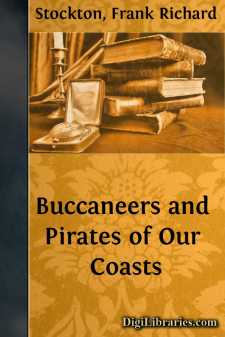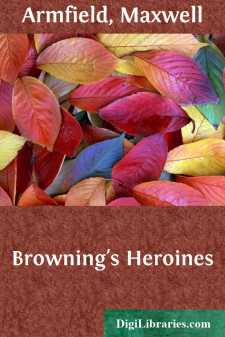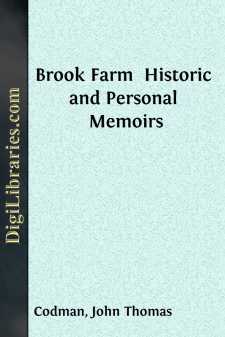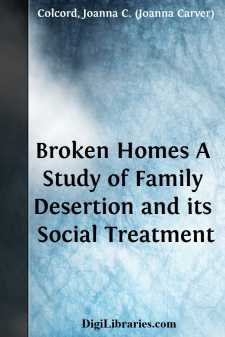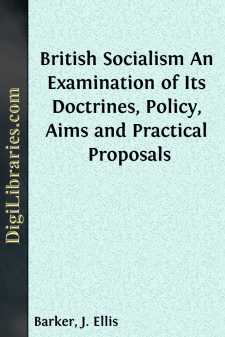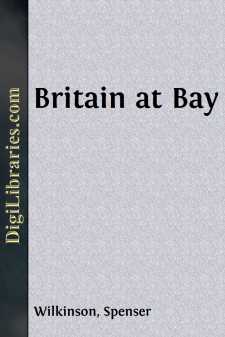Non-Classifiable
- Non-Classifiable 1768
Non-Classifiable Books
Sort by:
by:
Alexander Whyte
IGNORANCE “I was alive without the law once.”—Paul. “I was now a brisk talker also myself in the matter of religion.”—Bunyan. This is a new kind of pilgrim. There are not many pilgrims like this bright brisk youth. A few more young gentlemen like this, and the pilgrimage way would positively soon become fashionable and popular, and be the thing to do. Had you met with this young...
more...
by:
Alexander Whyte
INTRODUCTORY ‘The express image’ [Gr. ‘the character’].—Heb. 1. 3. The word ‘character’ occurs only once in the New Testament, and that is in the passage in the prologue of the Epistle to the Hebrews, where the original word is translated ‘express image’ in our version. Our Lord is the Express Image of the Invisible Father. No man hath seen God at any time. The only-begotten...
more...
Chapter I When I was a boy I strongly desired to be a pirate, and the reason for this was the absolute independence of that sort of life. Restrictions of all sorts had become onerous to me, and in my reading of the adventures of the bold sea-rovers of the main, I had unconsciously selected those portions of a pirate's life which were attractive to me, and had totally disregarded all the rest. In...
more...
by:
Maxwell Armfield
PREFACE When this book was projected, some one asked, "What is there to say about Browning's heroines beyond what he said himself?"—and the question, though it could not stay me, did chill momentarily my primal ardour. Soon, however, the restorative answer presented itself. "If there were nothing to say about Browning's heroines beyond what he said himself, it would be a bad...
more...
CHAPTER I ENGLISH POETS, FRIENDS AND ENTHUSIASMS To any one casually trying to recall what England has given Robert Browning by way of direct poetical inspiration, it is more than likely that the little poem about Shelley, "Memorabilia" would at once occur: I"Ah, did you once see Shelley plain,And did he stop and speak to youAnd did you speak to him again?How strange it seems and new!...
more...
CHAPTER I. THE DEVELOPMENT OF THE BROOK FARM MOVEMENT. Early in the present century, New England was the centre of progressive religious thought in America. A morbid theology had reigned supreme, but its forms were too cold, harsh and forbidding to attract or even retain the liberal-minded, educated and philosophic students of the rising generation, or hold in check the ardent humanitarian spirit, that...
more...
I INTRODUCTION It has frequently been said that desertion is the poor man's divorce but, like many epigrams, this one hardly stands the test of experience. When examined closely it is neither illuminating nor, if the testimony of social case workers can be accepted, is it true. It is true, of course, that many of the causes of domestic infelicity which lead to divorce among the well-to-do may...
more...
by:
J. Ellis Barker
CHAPTER I INTRODUCTION—WHAT IS SOCIALISM? What is Socialism? It is exceedingly difficult to answer that question in a few words, for Socialism is exceedingly elusive and bewildering in its doctrines, its aims, and its proposals. Its opponents have described it as "a doctrine of sordid materialism and of atheism," they have denounced it as "the gospel of everlasting bellyful," and as...
more...
Chapter I. In 1670 Charles II granted to the Hudson's Bay Company a Charter of Incorporation, His Majesty delegating to the Company actual sovereignty over a very large portion of British North America, and assigning to them the exclusive monopoly of trade and mining in the territory. Writing in 1869, Mr. William Forsyth, , says:—"I have endeavoured to give an account of the constitution and...
more...
ITHE NATION AND THE PARTIES"I do not believe in the perfection of the British constitution as an instrument of war ... it is evident that there is something in your machinery that is wrong." These were the words of the late Marquis of Salisbury, speaking as Prime Minister in his place in the House of Lords on the 30th of January 1900. They amounted to a declaration by the British Government that...
more...




